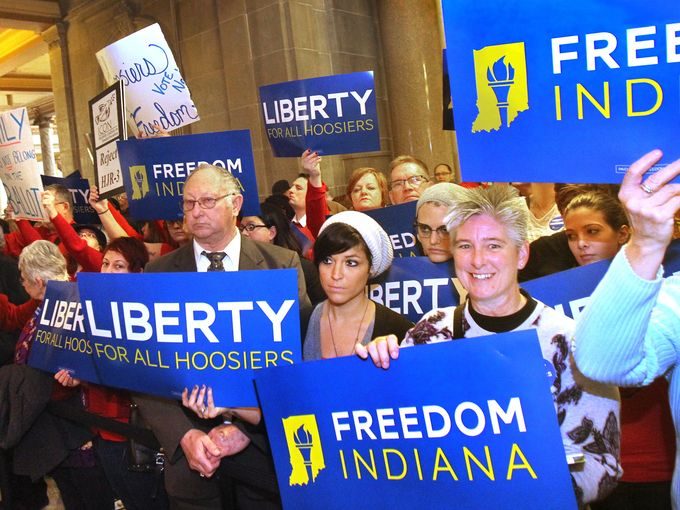Supreme Court denies appeals against same-sex marriage rulings.
On October 6, the Supreme Court of the United States denied petitions from the Tenth Circuit (Oklahoma, Utah), the Seventh Circuit (Indiana, Wisconsin) and the Fourth Circuit (Virginia), bringing marriage equality to those five states.
In Indiana, the stay on same-sex marriages will terminate immediately and licenses will be offered beginning now.
While Utah’s governor Gary R. Herbert stated that he was “surprised and disappointed” by the decision, he tweeted that state agencies have been advised, starting immediately, to recognize “all legally performed same-sex marriages.”
Virginia attorney general Mark Herring immediately announced that licenses would be issued in the state, while Wisconsin Unites tweeted that marriage licenses were being issued immediately to same-sex couples, and Colorado’s attorney general issued a statement that state clerks “must begin issuing marriage licenses to all same-sex couples.”
Equal rights organization Marriage Equality USA [MEUSA] predicts that North Carolina, South Carolina, Kansas, Colorado, Wyoming, and West Virginia will soon follow.
“Today is a great day for millions of Americans who can now access the rights, responsibilities and protections that only marriage can provide,” said MEUSA Executive Direction Brian Silva. “But we know that for millions more Americans, today’s ruling still leaves them vulnerable to the harm caused by a lack of access to marriage.”
The Supreme Court’s decision, which has surprised some commentators, eventually will bring to 30 the number of states where gays and lesbians can marry.
Appeals courts in Cincinnati and San Francisco are considering cases that could expand that number further.
